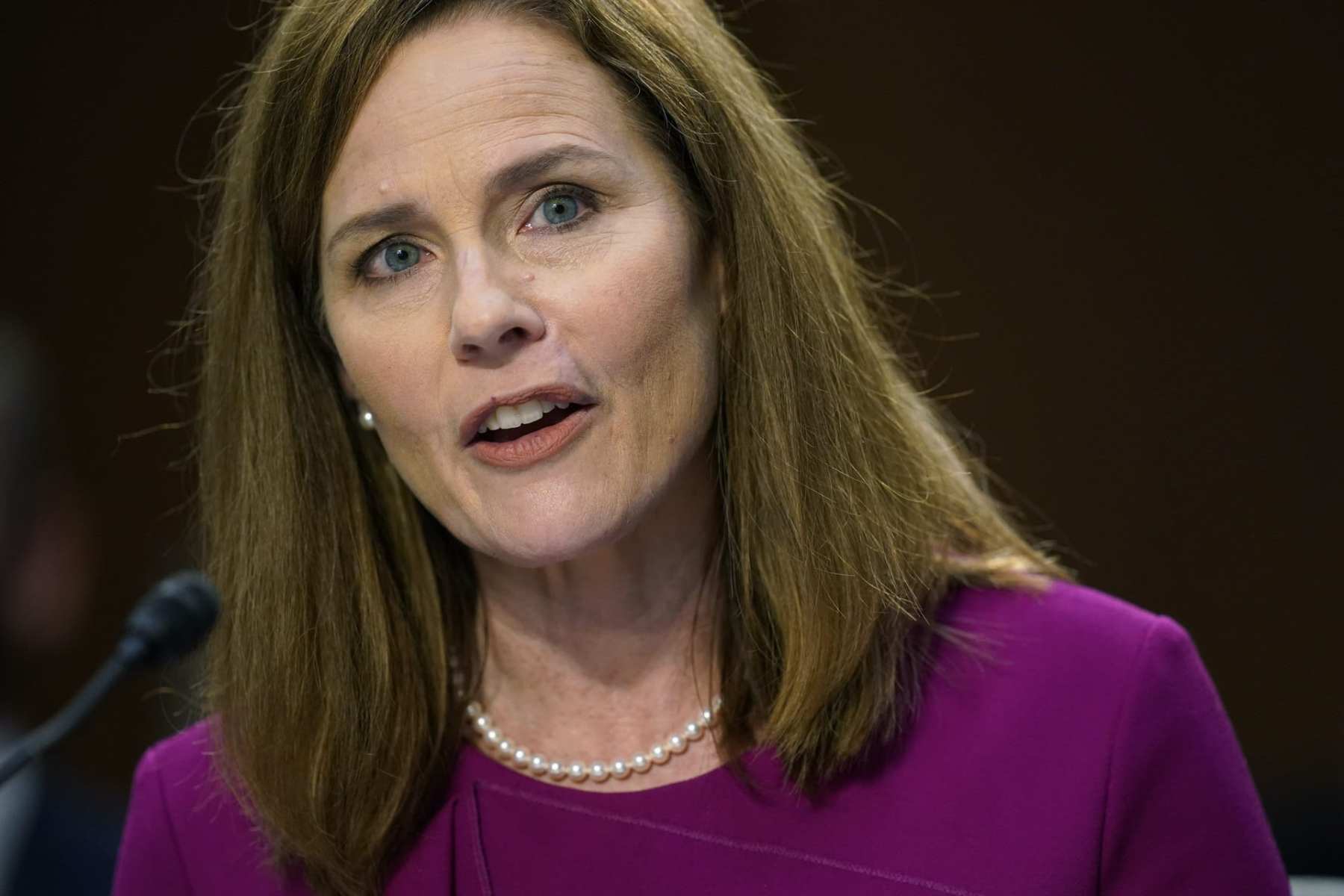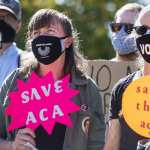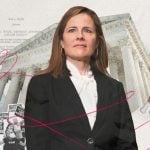Despite a COVID-19 outbreak at the White House and Capitol Hill, the confirmation hearings for Judge Amy Coney Barrett, President Trump’s pick to join the Supreme Court, are underway. With some lawmakers — including those who recently tested positive for the virus — appearing in person, others choosing to go virtual, health care is top of mind.
And that extends beyond the coronavirus. Experts say Barrett’s addition to the court would have major long-term implications when it comes to health care access, a theme Democrats are expected to emphasize over the week-long hearing, and which dominated their opening remarks on Monday.
“This is a very consequential moment for the courts,” said Wendy Netter Epstein, a health law professor at DePaul University. “Replacing a justice like Ruth Bader Ginsburg with an Amy Coney Barrett will make a tremendous difference. Not even just considering the liberal and conservative divide on the court, but also because Ruth Bader Ginsburg was such a tremendous leader on women’s rights and individual rights in general.”
Barrett’s own opening statement indicates an openness to scaling back the role the Supreme Court plays in interpreting and enforcing gender-specific protections in the law. In her remarks, Barrett argued that “courts are not designed to solve every problem or right every wrong in our public life.”
Since Barrett’s nomination was announced, Democrats, including presidential candidate Joe Biden, have focused on the role she could play in maintaining the Affordable Care Act, a law that had outsized implications for women and the LGBTQ+ community.
The ACA is facing a legal challenge, with oral arguments in California v. Texas scheduled for Nov. 10. In that case, a group of Republican attorneys general has argued that the 2017 tax law — which set the ACA’s individual mandate penalty to $0 — requires the rest of the health law be eliminated. The Trump administration has officially joined in that argument.
If Barrett is confirmed before Nov. 10, she would have a chance to weigh in, as well. In past ACA cases, she has written in favor of arguments to strike down the law.
The case, which legal experts consider to be shaky at best, remains “a long shot,” said Nicholas Bagley, a law professor at the University of Michigan who specializes in health policy. But the likely Barrett confirmation means “the odds of it happening are higher than they were before.”
Undoing the ACA would eliminate many existing health care protections. Broadly, the health law expanded access to coverage and banned gender-based discrimination in health care. It required that insurance cover pregnancy-related care and contraception. And it prohibited charging people more, or even denying them insurance, if they had preexisting conditions.
A recent policy brief by the nonprofit Kaiser Family Foundation suggested that, if the health law is reversed, mental health conditions could become the most common preexisting medical concern. In the wake of COVID-19, cases of depression and anxiety have sharply increased — with the burden falling disproportionately on gendered lines. Without the ACA’s protections, depression and anxiety could result in people having to pay more for coverage, or even being denied insurance altogether.
Even beyond the ACA, observers across the political spectrum have also pointed to Barrett’s views on abortion, reproductive health in general and access to health care for transgender people — issues that are likely to come up in the confirmation process.
In 2006, Barrett, a devout Catholic, signed an advertisement calling to overturn Roe v. Wade, which enshrined constitutional protections for abortion. The ad also said life begins at “fertilization,” a stance that also suggests opposition to practices like in vitro fertilization. The head of St. Joseph County Right to Life, which sponsored the ad, has said the framing was meant in opposition to not only abortion, but also IVF — the latter because not all embryos generated for the procedure are ultimately used, and those leftover may be discarded.
Separately, Barrett previously said Title IX didn’t justify letting transgender people use restrooms that match their genders, misgendering trans women in the process. She has also given speeches for the Alliance Defending Freedom, which holds extreme anti-LGBTQ views and is considered a hate group by the Southern Poverty Law Center. ADF is also known for its legal work in opposition to both abortion and contraception access.
Barrett has maintained that, if confirmed, her personal views wouldn’t influence her rulings. In her opening statement on Monday, she referenced her late mentor Justice Antonin Scalia, who she said shaped her view that her job was to interpret the law as written.
As a law professor, Barrett suggested that Roe v. Wade offered a flawed legal precedent, though she also reportedly said it was “very unlikely” its abortion protection would ever be fully overturned. As an appellate judge on the 7th Circuit, she signed onto dissenting opinions that supported restricting access to abortion.
On the Supreme Court, Barrett would likely have the chance to weigh in on broad issues of gender-related health care. Already, the court has been asked to consider the legality of the Trump administration’s efforts to cut Planned Parenthood out of Title X, the federal family planning program for low-income people, as well as whether states can block Planned Parenthood out of their Medicaid programs. The Title X changes alone have resulted in more than 1,000 family planning clinics losing federal funds.
Other pending cases examine state-based efforts to restrict abortion access, questions of whether and to what extent insurance must cover contraception, and whether health care providers must provide trans affirming care to patients or can opt out based on so-called “conscience” objections. (ADF has also supported such objections.)
Barrett’s judicial history is short, and she isn’t likely to specifically explain how she might rule on such cases during confirmation hearings.
But Katie Keith, a health law expert at Georgetown University, pointed to Barrett’s own remarks as clues. Even before her hearing, Barrett has a history of suggesting it is not the Supreme Court’s job to interpret laws as providing specific gender protections, but that instead, Congress or state legislatures must explicitly craft them.
“That could permeate through a lot of things,” Keith said. “She’s willing to see civil rights as up to the legislatures.”





